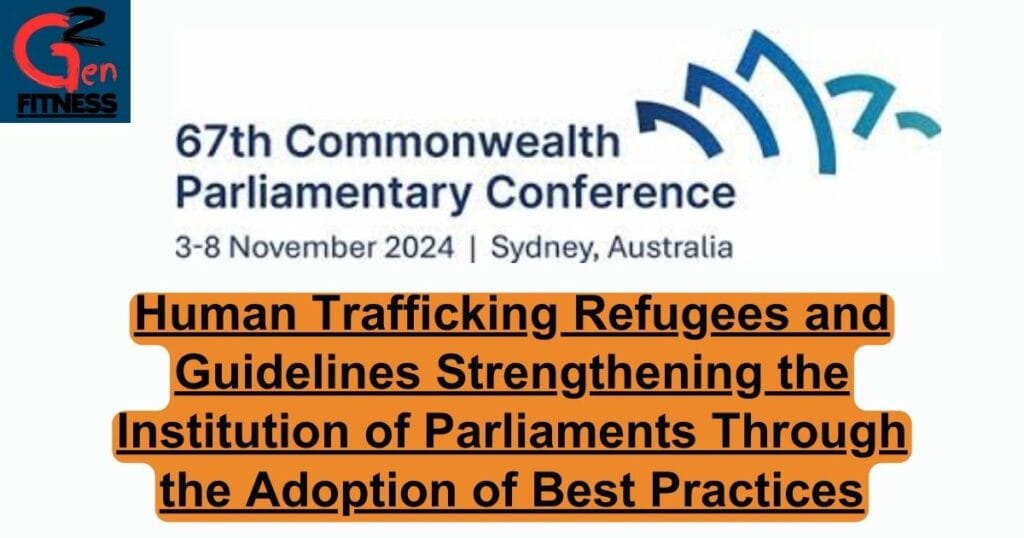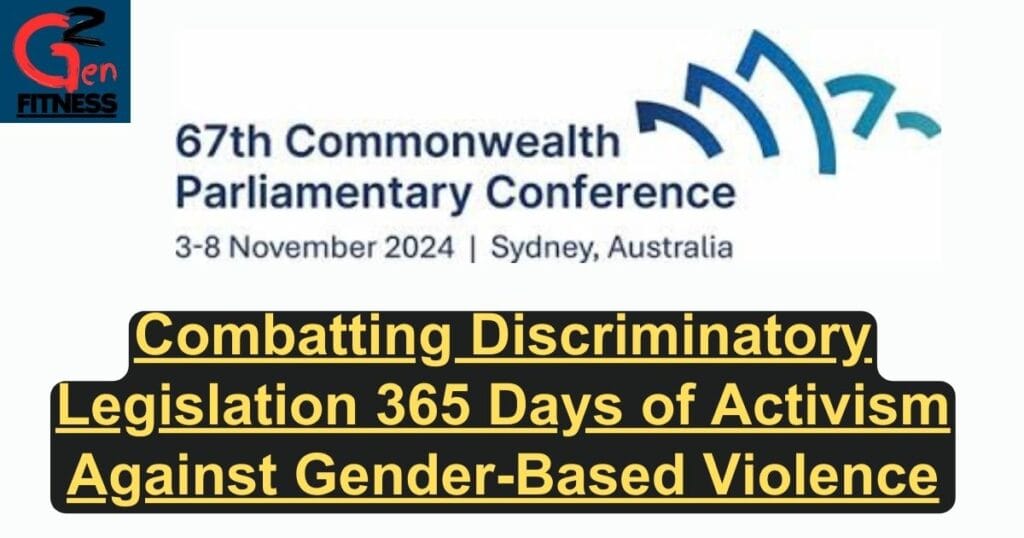

Workshop E: Human Trafficking Refugees and Guidelines Strengthening the Institution of Parliaments
Honorable Chair, distinguished delegates, and esteemed guests,
Today, I stand before you to discuss some of the most pressing humanitarian and legislative challenges of our time—human trafficking, the plight of refugees, and the vital role that parliaments play in addressing these issues through the adoption of best practices. These challenges not only require urgent attention but also demand a comprehensive, collaborative response from parliaments and governments worldwide.
Human trafficking and the refugee crisis are not isolated issues; they are interconnected, driven by conflict, poverty, inequality, and exploitation. At their core, both involve the violation of fundamental human rights, the dismantling of human dignity, and the failure of systems designed to protect the vulnerable. However, we, as parliamentarians, are uniquely positioned to turn the tide on these crises through effective legislation, advocacy, and governance.
In this speech, I will explore the critical role of parliaments in combating human trafficking, protecting refugees, and strengthening our institutions through the adoption of best practices. Our legislative frameworks, when crafted with care and grounded in justice, can serve as powerful tools to safeguard human rights and foster international cooperation.
Human Trafficking—A Global Crime Requiring Global Action
Human trafficking is one of the gravest crimes of our time, affecting an estimated 25 million people around the world. It is a form of modern-day slavery, where men, women, and children are exploited for forced labor, sexual exploitation, domestic servitude, and even organ trafficking. Traffickers prey on the most vulnerable in society, including refugees, migrants, and those living in extreme poverty.
As parliamentarians, we have a moral and legal obligation to enact strong, clear legislation that criminalizes human trafficking in all its forms. But laws alone are not enough. To effectively combat human trafficking, parliaments must also ensure that these laws are supported by well-resourced institutions and enforcement mechanisms.
There are three key areas where parliamentary action can make a profound difference:
- Strengthening National Legislation and International Cooperation:Human trafficking is a transnational crime, meaning that no country can tackle this issue in isolation. We must strengthen our national legislation to align with international conventions, such as the United Nations’ Palermo Protocol, which provides a framework for preventing, suppressing, and punishing trafficking.Parliaments should promote regional and international cooperation, sharing data, intelligence, and best practices. Bilateral and multilateral agreements can facilitate the prosecution of traffickers across borders, the protection of victims, and the dismantling of trafficking networks.
- Protecting and Supporting Victims:Victims of trafficking often face a host of challenges in seeking justice, from the fear of reprisal by traffickers to the lack of access to legal, medical, and psychological support. Parliaments must ensure that laws are in place to protect victims from further harm, while also providing them with the resources they need to rebuild their lives.This includes establishing victim identification and protection mechanisms, safe shelters, and legal avenues for survivors to seek justice without fear of criminalization. It is also critical to adopt policies that allow for the reintegration of survivors into society through education, vocational training, and employment opportunities.
- Raising Awareness and Preventing Trafficking:Prevention is as important as prosecution. Parliaments must work to raise public awareness about the realities of human trafficking and the risks faced by vulnerable populations, particularly in refugee and migrant communities. Through targeted education campaigns, both at the national and community levels, we can help prevent individuals from falling victim to traffickers.Additionally, parliaments should foster collaboration with civil society organizations, NGOs, and the private sector to combat trafficking in supply chains and promote ethical labor practices.
The Refugee Crisis—A Humanitarian Obligation
Alongside human trafficking, the refugee crisis remains one of the most significant humanitarian challenges facing the world today. According to the United Nations High Commissioner for Refugees (UNHCR), there are over 100 million displaced people worldwide, driven from their homes by conflict, persecution, natural disasters, and economic instability. Many of these individuals are forced to flee their countries in search of safety and security, often risking their lives in the process.
Refugees, like trafficking victims, are among the most vulnerable members of society, often subjected to exploitation, abuse, and discrimination. As parliamentarians, it is our duty to ensure that refugees are afforded their rights and treated with dignity and respect.
Here, too, there are key areas where parliaments must take action:
- Ensuring Legal Protections for Refugees:Parliaments must ensure that national laws are in full compliance with international refugee law, including the 1951 Refugee Convention and its 1967 Protocol. These frameworks guarantee the rights of refugees to seek asylum and provide protections against refoulement—the forced return of refugees to countries where they may face persecution.In addition to guaranteeing these legal protections, parliaments must ensure that refugees have access to social services, education, healthcare, and legal aid. Legislation should be passed to facilitate the integration of refugees into host communities, allowing them to contribute to the social and economic fabric of the countries that welcome them.
- Addressing the Root Causes of Forced Displacement:Parliaments should work to address the root causes of forced displacement, which include armed conflict, political instability, climate change, and economic deprivation. By promoting peacebuilding, development, and human rights, we can reduce the factors that force people to flee their homes in the first place.Furthermore, parliaments can play a vital role in holding governments accountable for their foreign policies and humanitarian aid efforts, ensuring that they contribute to international peace and security rather than exacerbating conflicts or crises.
- Fostering International Solidarity and Burden-Sharing:No single country can bear the burden of the refugee crisis alone. Parliaments must advocate for fair and equitable burden-sharing, encouraging the international community to come together to provide financial, logistical, and humanitarian support to countries hosting large numbers of refugees.Legislatures should also promote resettlement programs that provide safe, legal pathways for refugees to relocate to countries where they can start new lives. By fostering international solidarity and cooperation, we can ensure that refugees are treated with the compassion and support they deserve.
Adopting Best Practices for Parliamentary Strengthening
Finally, I want to address the importance of adopting best practices in our parliamentary institutions to ensure that we can effectively tackle these challenges. Strong parliaments are essential for good governance, accountability, and the protection of human rights. The adoption of best practices can help parliaments function more effectively, transparently, and inclusively.
Here are a few key best practices that parliaments should consider:
- Legislative Oversight and Accountability:Parliaments must hold governments accountable for their actions and policies, particularly those related to human trafficking, refugee protection, and human rights. This requires robust oversight mechanisms, including parliamentary committees, public hearings, and inquiries.Best practices also include transparency measures that allow citizens to engage with the legislative process and hold their elected officials accountable. Open data initiatives, public access to parliamentary debates, and civil society consultations are all ways to foster transparency and accountability.
- Inclusivity and Representation:Parliaments must reflect the diversity of the societies they serve. This means ensuring that women, minorities, and marginalized communities are represented in decision-making processes. Inclusive parliaments are better equipped to address the needs of all citizens, including those most vulnerable to trafficking and displacement.Best practices for inclusivity include gender quotas, diversity training for parliamentarians, and the creation of parliamentary caucuses dedicated to human rights, refugees, and anti-trafficking efforts.
- Capacity Building and International Cooperation:Finally, parliaments should invest in capacity-building initiatives that strengthen their ability to legislate effectively and address complex global challenges. This includes training for parliamentarians on human rights, refugee law, and anti-trafficking efforts, as well as collaboration with international organizations and other legislative bodies.By sharing knowledge, expertise, and best practices, parliaments can learn from each other and develop innovative solutions to the challenges they face.
Conclusion
In conclusion, human trafficking and the refugee crisis represent some of the most pressing moral and legislative challenges of our time. Parliaments, as the guardians of justice and human rights, have a crucial role to play in addressing these issues through the adoption of best practices. By strengthening our legislative frameworks, promoting international cooperation, and ensuring the protection of the most vulnerable, we can make a meaningful difference in the lives of millions of people around the world.
Let us rise to the challenge, work together, and build a future where human trafficking is eradicated, refugees are protected, and parliaments serve as beacons of justice, equality, and human dignity.
Thank you.Honorable Chair, distinguished delegates, and esteemed guests,
Today, I stand before you to discuss some of the most pressing humanitarian and legislative challenges of our time—human trafficking, the plight of refugees, and the vital role that parliaments play in addressing these issues through the adoption of best practices. These challenges not only require urgent attention but also demand a comprehensive, collaborative response from parliaments and governments worldwide.
Human trafficking and the refugee crisis are not isolated issues; they are interconnected, driven by conflict, poverty, inequality, and exploitation. At their core, both involve the violation of fundamental human rights, the dismantling of human dignity, and the failure of systems designed to protect the vulnerable. However, we, as parliamentarians, are uniquely positioned to turn the tide on these crises through effective legislation, advocacy, and governance.
In this speech, I will explore the critical role of parliaments in combating human trafficking, protecting refugees, and strengthening our institutions through the adoption of best practices. Our legislative frameworks, when crafted with care and grounded in justice, can serve as powerful tools to safeguard human rights and foster international cooperation.
Human Trafficking—A Global Crime Requiring Global Action
Human trafficking is one of the gravest crimes of our time, affecting an estimated 25 million people around the world. It is a form of modern-day slavery, where men, women, and children are exploited for forced labor, sexual exploitation, domestic servitude, and even organ trafficking. Traffickers prey on the most vulnerable in society, including refugees, migrants, and those living in extreme poverty.
As parliamentarians, we have a moral and legal obligation to enact strong, clear legislation that criminalizes human trafficking in all its forms. But laws alone are not enough. To effectively combat human trafficking, parliaments must also ensure that these laws are supported by well-resourced institutions and enforcement mechanisms.
There are three key areas where parliamentary action can make a profound difference:
- Strengthening National Legislation and International Cooperation:Human trafficking is a transnational crime, meaning that no country can tackle this issue in isolation. We must strengthen our national legislation to align with international conventions, such as the United Nations’ Palermo Protocol, which provides a framework for preventing, suppressing, and punishing trafficking.Parliaments should promote regional and international cooperation, sharing data, intelligence, and best practices. Bilateral and multilateral agreements can facilitate the prosecution of traffickers across borders, the protection of victims, and the dismantling of trafficking networks.
- Protecting and Supporting Victims:Victims of trafficking often face a host of challenges in seeking justice, from the fear of reprisal by traffickers to the lack of access to legal, medical, and psychological support. Parliaments must ensure that laws are in place to protect victims from further harm, while also providing them with the resources they need to rebuild their lives.This includes establishing victim identification and protection mechanisms, safe shelters, and legal avenues for survivors to seek justice without fear of criminalization. It is also critical to adopt policies that allow for the reintegration of survivors into society through education, vocational training, and employment opportunities.
- Raising Awareness and Preventing Trafficking:Prevention is as important as prosecution. Parliaments must work to raise public awareness about the realities of human trafficking and the risks faced by vulnerable populations, particularly in refugee and migrant communities. Through targeted education campaigns, both at the national and community levels, we can help prevent individuals from falling victim to traffickers.Additionally, parliaments should foster collaboration with civil society organizations, NGOs, and the private sector to combat trafficking in supply chains and promote ethical labor practices.
The Refugee Crisis—A Humanitarian Obligation
Alongside human trafficking, the refugee crisis remains one of the most significant humanitarian challenges facing the world today. According to the United Nations High Commissioner for Refugees (UNHCR), there are over 100 million displaced people worldwide, driven from their homes by conflict, persecution, natural disasters, and economic instability. Many of these individuals are forced to flee their countries in search of safety and security, often risking their lives in the process.
Refugees, like trafficking victims, are among the most vulnerable members of society, often subjected to exploitation, abuse, and discrimination. As parliamentarians, it is our duty to ensure that refugees are afforded their rights and treated with dignity and respect.
Here, too, there are key areas where parliaments must take action:
- Ensuring Legal Protections for Refugees:Parliaments must ensure that national laws are in full compliance with international refugee law, including the 1951 Refugee Convention and its 1967 Protocol. These frameworks guarantee the rights of refugees to seek asylum and provide protections against refoulement—the forced return of refugees to countries where they may face persecution.In addition to guaranteeing these legal protections, parliaments must ensure that refugees have access to social services, education, healthcare, and legal aid. Legislation should be passed to facilitate the integration of refugees into host communities, allowing them to contribute to the social and economic fabric of the countries that welcome them.
- Addressing the Root Causes of Forced Displacement:Parliaments should work to address the root causes of forced displacement, which include armed conflict, political instability, climate change, and economic deprivation. By promoting peacebuilding, development, and human rights, we can reduce the factors that force people to flee their homes in the first place.Furthermore, parliaments can play a vital role in holding governments accountable for their foreign policies and humanitarian aid efforts, ensuring that they contribute to international peace and security rather than exacerbating conflicts or crises.
- Fostering International Solidarity and Burden-Sharing:No single country can bear the burden of the refugee crisis alone. Parliaments must advocate for fair and equitable burden-sharing, encouraging the international community to come together to provide financial, logistical, and humanitarian support to countries hosting large numbers of refugees.Legislatures should also promote resettlement programs that provide safe, legal pathways for refugees to relocate to countries where they can start new lives. By fostering international solidarity and cooperation, we can ensure that refugees are treated with the compassion and support they deserve.
Adopting Best Practices for Parliamentary Strengthening
Finally, I want to address the importance of adopting best practices in our parliamentary institutions to ensure that we can effectively tackle these challenges. Strong parliaments are essential for good governance, accountability, and the protection of human rights. The adoption of best practices can help parliaments function more effectively, transparently, and inclusively.
Here are a few key best practices that parliaments should consider:
- Legislative Oversight and Accountability:Parliaments must hold governments accountable for their actions and policies, particularly those related to human trafficking, refugee protection, and human rights. This requires robust oversight mechanisms, including parliamentary committees, public hearings, and inquiries.Best practices also include transparency measures that allow citizens to engage with the legislative process and hold their elected officials accountable. Open data initiatives, public access to parliamentary debates, and civil society consultations are all ways to foster transparency and accountability.
- Inclusivity and Representation:Parliaments must reflect the diversity of the societies they serve. This means ensuring that women, minorities, and marginalized communities are represented in decision-making processes. Inclusive parliaments are better equipped to address the needs of all citizens, including those most vulnerable to trafficking and displacement.Best practices for inclusivity include gender quotas, diversity training for parliamentarians, and the creation of parliamentary caucuses dedicated to human rights, refugees, and anti-trafficking efforts.
- Capacity Building and International Cooperation:Finally, parliaments should invest in capacity-building initiatives that strengthen their ability to legislate effectively and address complex global challenges. This includes training for parliamentarians on human rights, refugee law, and anti-trafficking efforts, as well as collaboration with international organizations and other legislative bodies.By sharing knowledge, expertise, and best practices, parliaments can learn from each other and develop innovative solutions to the challenges they face.
Conclusion
In conclusion, human trafficking and the refugee crisis represent some of the most pressing moral and legislative challenges of our time. Parliaments, as the guardians of justice and human rights, have a crucial role to play in addressing these issues through the adoption of best practices. By strengthening our legislative frameworks, promoting international cooperation, and ensuring the protection of the most vulnerable, we can make a meaningful difference in the lives of millions of people around the world.
Let us rise to the challenge, work together, and build a future where human trafficking is eradicated, refugees are protected, and parliaments serve as beacons of justice, equality, and human dignity.
Thank you.
Best Book to read in 2024- https://eatyourproblems.store/
Workshop G: Combatting Discriminatory Legislation







